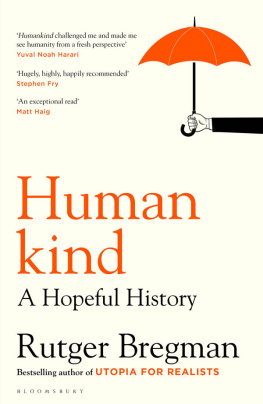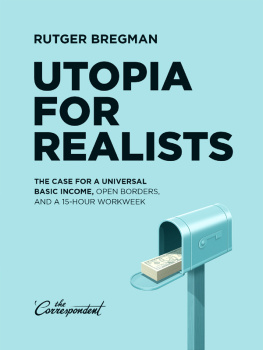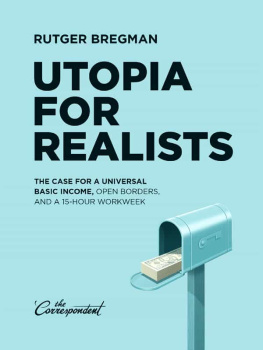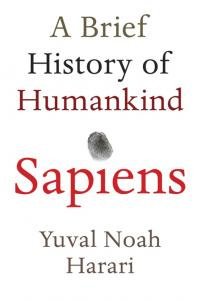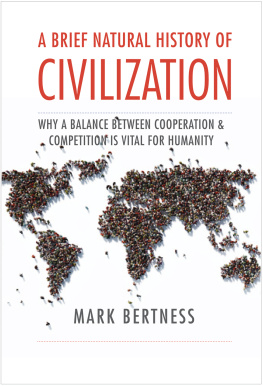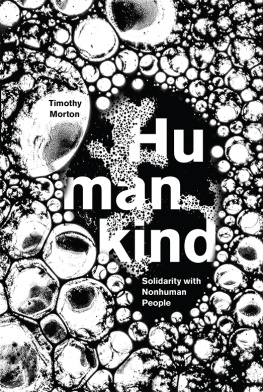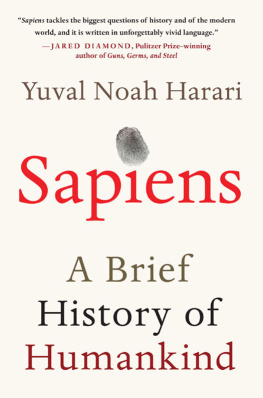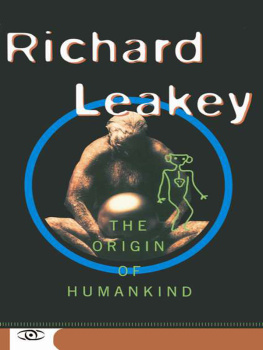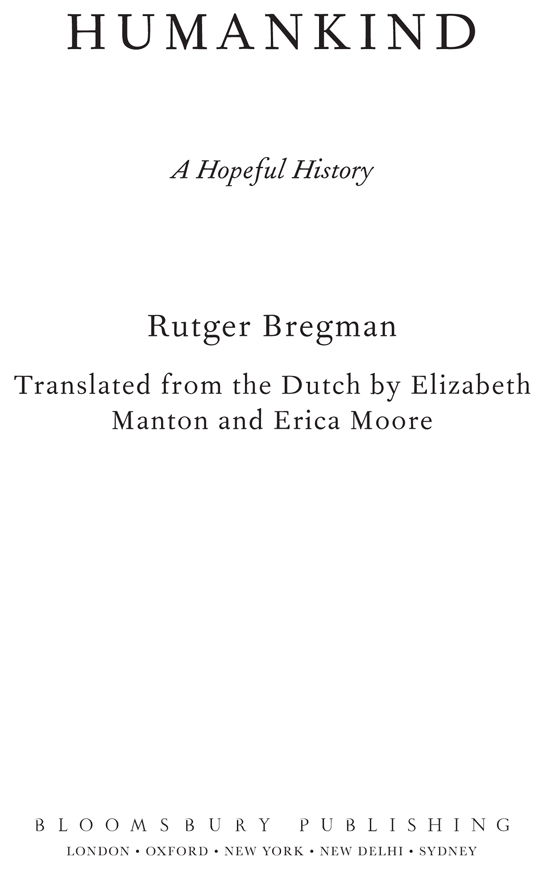More praise for Humankind
An extraordinarily powerful declaration of faith in the innate goodness and natural decency of human beings. Never dewy-eyed, wistful or naive, Rutger Bregman makes a wholly robust and convincing case for believing despite so much apparent evidence to the contrary that we are not the savage, irredeemably greedy, violent and rapacious species we can be led into thinking ourselves to be Stephen Fry
Every revolution in human affairs and were in one right now! comes in tandem with a new understanding of what we mean by the word human. Rutger Bregman has succeeded in reawakening that conversation by articulating a kinder view of humanity (with better science behind it). This book gives us some real hope for the future Brian Eno
Humankind provides the philosophical and historical backbone to give us the confidence to collaborate, be kind and trust each other to build a better society Mariana Mazzucato, author of The Value of Everything
Some books challenge our ideas. But Humankind challenges the very premises on which those ideas are based. Its bold, sweeping argument will make you rethink what you believe about society, democracy and human nature itself. In a sea of cynicism, this book is the sturdy, unsinkable lifeboat the world needs Daniel H. Pink, author of Drive
This is a wonderful and uplifting book. I not only want all my friends and relations to read it, but everyone else as well. It is an essential part of the campaign for a better world Richard Wilkinson, author of The Spirit Level
A fantastic read Good fun, fresh and a page turner James Rebanks, author of The Shepherds Life
This stunning book will change how you see the world and your fellow humans. It is mind-expanding and, more importantly, heart-expanding. We have never needed this message more than now Johann Hari, author of Lost Connections
Rutger Bregmans extraordinary new book is a revelation Susan Cain, author of Quiet
Rutger Bregman is one of my favourite thinkers. His latest book challenges our basic assumptions about human nature in a way that opens up a world of new possibilities. Humankind is simple, perceptive and powerful in the way that the best books and arguments are Andrew Yang
I have not read anything quite as stunningly well written, insightful and revelatory for a very long time. So long, in fact, that I cannot remember the last time Danny Dorling, author of Inequality and the 1%
This book demolishes the cynical view that humans are inherently nasty and selfish, and paints a portrait of human nature thats not only more uplifting its also more accurate. Rutger Bregman is one of the most provocative thinkers of our time Adam Grant, author of Give and Take
Put aside your newspaper for a little while and read this book Barry Schwartz, author of Practical Wisdom
I know of no more powerful or carefully documented rejoinder to Machiavellis observation that men never do anything good except out of necessity than Rutger Bregmans book. His reassessment of human nature is as faithful to the actual evidence as it is uplifting Sarah Blaffer Hrdy, author of Mothers and Others
Humankind articulates what we anthropologists have been arguing for decades, only far more beautifully. Want to catch up with the science? Read this book. Its myth-busting at its best, and a hopeful new story for the twenty-first century Jason Hickel, author of The Divide
Humankind is an in-depth overview of what is wrong with the idea that we humans are by nature bad and unreliable. In vivid descriptions and stories, Rutger Bregman takes us back to the questionable experiments that fed this idea and offers us a more optimistic view of mankind Frans de Waal, author of Mamas Last Hug
This beautifully written, well documented, myth-busting work is now number one on my list of what everyone should read. Read it and buy copies for all of your most cynical friends Peter Gray, author of Free to Learn
HUMANKIND
To my parents
ALSO BY RUTGER BREGMAN
Utopia for Realists
CONTENTS
Man will become better when you show him what he is like.
Anton Chekhov (18601904)
On the eve of the Second World War, the British Army Command found itself facing an existential threat. London was in grave danger. The city, according to a certain Winston
The beast of prey was, of course, Adolf Hitler and his war machine. If the British population broke under the terror of his bombers, it would spell the end of the nation. Traffic will cease, the homeless will shriek for help, the city will be in pandemonium, feared one British general. Millions of civilians would succumb to the strain, and the army wouldnt even get around to fighting because it would have its hands full with the hysterical masses. Churchill predicted that at least three to four million Londoners would flee the city.
Anyone wanting to read up on all the evils to be unleashed needed only one book: Psychologie des foules The Psychology of the Masses by one of the most influential scholars of his day, the Frenchman Gustave Le Bon. Hitler read the book cover to cover. So did Mussolini, Stalin, Churchill and Roosevelt.
Le Bons book gives a play by play of how people respond to crisis. Almost instantaneously, he writes, man descends several Panic and violence erupt, and we humans reveal our true nature.
On 19 October 1939, Hitler briefed his generals on the German plan of attack. The ruthless employment of the Luftwaffe against the heart of the British will-to-resist, he said, can and will follow at the given moment.
In Britain, everyone felt the clock ticking. A last-ditch plan to dig a network of underground shelters in London was considered, but ultimately scrapped over concerns that the populace, paralysed by fear, would never re-emerge. At the last moment, a few psychiatric field hospitals were thrown up outside the city to tend to the first wave of victims.
And then it began.
On 7 September 1940, 348 German bomber planes crossed the Channel. The fine weather had drawn many Londoners outdoors, so when the sirens sounded at 4:43 p.m. all eyes went to the sky.
That September day would go down in history as Black Saturday, and what followed as the Blitz. Over the next nine months, more than 80,000 bombs would be dropped on London alone. Entire neighbourhoods were wiped out. A million buildings in the capital were damaged or destroyed, and more than 40,000 people in the UK lost their lives.
So how did the British react? What happened when the country was bombed for months on end? Did people get hysterical? Did they behave like brutes?
Let me start with the eyewitness account of a Canadian psychiatrist.
In October 1940, Dr John MacCurdy drove through south-east London to visit a poor neighbourhood that had been particularly hard hit. All that remained was a patchwork of craters and crumbling buildings. If there was one place sure to be in the grip of pandemonium, this was it.
So what did the doctor find, moments after an air raid alarm? Small boys continued to play all over the pavements, shoppers went on haggling, a policeman directed traffic in majestic boredom and the bicyclists defied death and the traffic laws. No one, so far as I could see, even looked into the sky.

